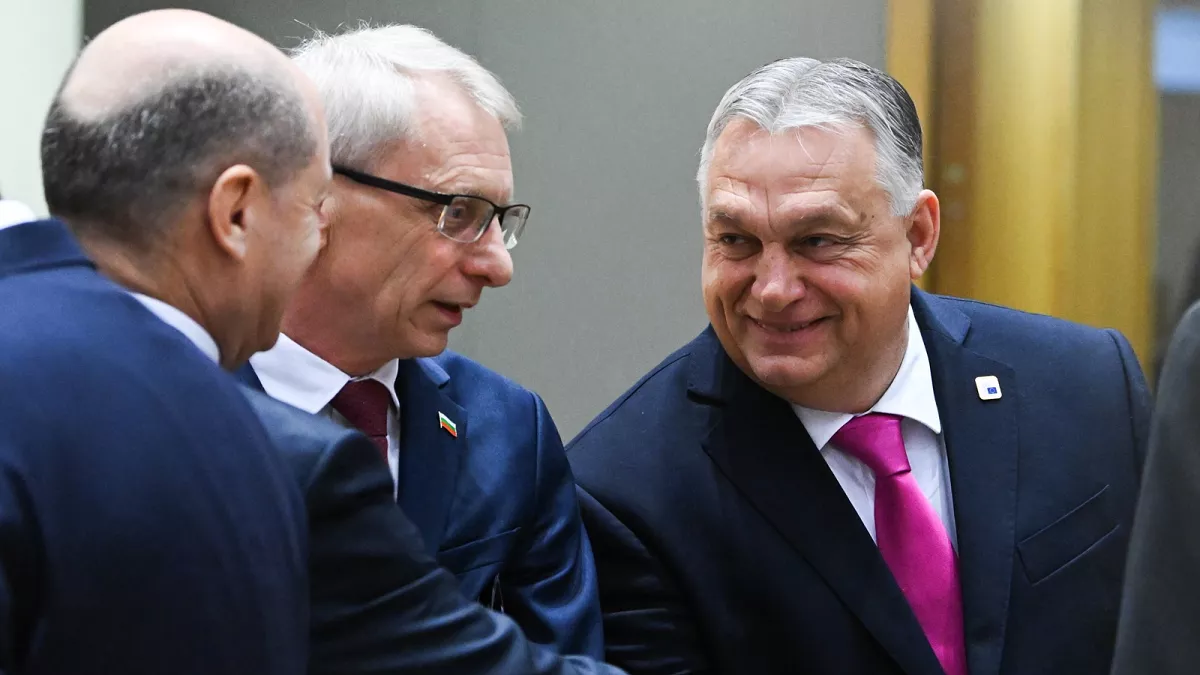Hungary keeps stalling Ukraine’s EU accession effort

Budapest using its tools to stall process for months.
Hungary is gearing up to add more obstacles to Ukraine's accession process with a national referendum on the question, while Kyiv had hoped to take the next steps this year.
Brussels and the Polish EU presidency had hoped to open the first negotiation cluster on Ukraine’s and Moldova’s EU membership - related to the so-called 'fundamentals' related to shared values, rule of law, independent judiciary and human rights – this week.
This would have come after 27 EU member states, including Hungary, had already made the political decision to start negotiations last June.
However, all EU members must agree to open or close each of the 35 negotiating chapters that would make it align their national laws with EU legislation.
Budapest has stalled the process for months, primarily over complaints about discrimination of national minorities but also over an increasingly Russia-friendly course against Ukraine.
Poland’s Europe Minister, Adam Szłapka, said last week that Warsaw was still hoping to make the step happen before its EU stint ends at the end of July, though European diplomats remain sceptical that Budapest will move any time soon.
"For 2025, we're very hopeful that all six clusters can be opened," Ukraine's Prime Minister Denys Shmyhal told reporters in Brussels.
Kyiv was moving forward with reforms and legislation, including adjustments already made to the national minorities' law, Shmyhal said.
"There is now a clear consensus among EU26 to open clusters with Ukraine," Enlargement Commissioner Marta Kos told reporters.
Kos confirmed she was in touch with Hungarian authorities, and Brussels was making a "clear commitment" for the process to happen by autumn.
Hungary’s Prime Minister Viktor Orbán last month announced plans he would move to hold a national referendum on Ukraine’s EU accession, with a 20 June response deadline.
But similar to the past anti-sanctions referendum in 2023, Hungarian officials say the current plans are expected to take the form of a consultation rather than a binding referendum.
Nevertheless, Orbán’s government has made significant efforts to try to sway the country’s public opinion to vote against Ukraine’s EU accession.
Part of that is an extensive billboard and flyer campaign against it, targeting Ukraine’s President Volodymyr Zelenskyy, European Commission chief Ursula von der Leyen, and German conservative politician Manfred Weber. A headline reads: “Don’t let them decide over our heads!”
The referendum is expected to feature a single yes-or-no question whether voters would support Ukraine becoming an EU member.
However, the ballots that will be delivered to households by post are expected to include information on “the most important aspects and risks related to Ukraine's accession,” which is seen as influencing the vote in the negative.
A narrow majority of Hungarians still support Ukraine’s future EU membership despite the government’s anti-accession campaign, according to a recent survey by the Republikon Institute for the Hungarian newspaper Népszava.
While 46% of respondents said they did not support Ukraine's accession to the EU, 47% said they would support it in the long term and 7% remained undecided.
Among the supporters, 32% said they would support Ukraine’s admission if it takes place within approximately 7–10 years, while another 15% said they would accept the step within approximately 3–4 years.